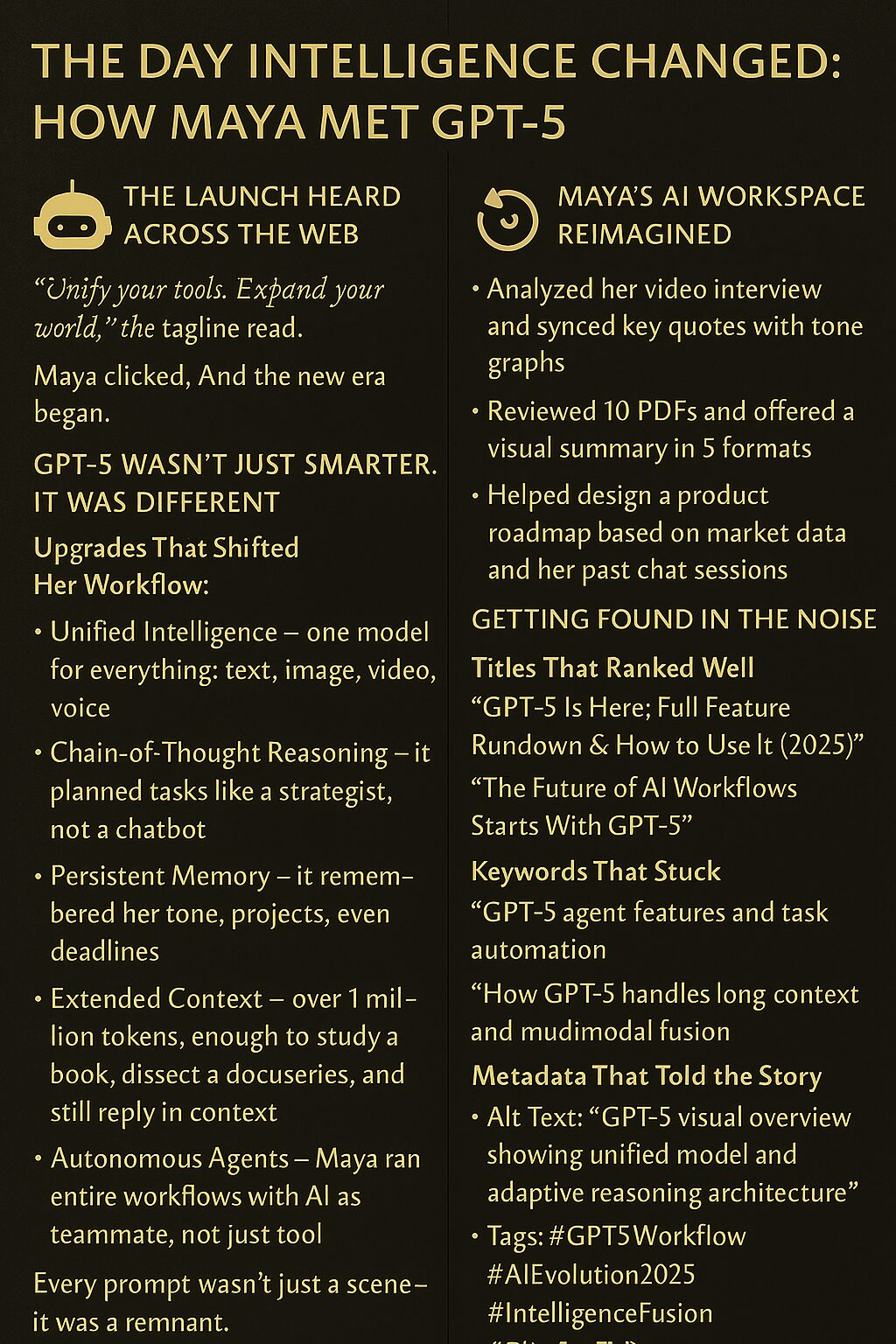Introduction
The wait is over—GPT-5, OpenAI’s most advanced language model to date, is officially rolling out in 2025. With groundbreaking upgrades in reasoning, multimodality, memory, and autonomous capabilities, GPT-5 marks a major leap toward general-purpose AI. Whether you’re a developer, researcher, or business leader, this guide offers a complete breakdown of GPT-5’s features, release timeline, and real-world impact.
🚀 GPT-5 Release Date & Rollout Timeline
- Confirmed Launch Window: Mid-to-late 2025
- Phased Access:
- Early access for enterprise partners and API developers
- Gradual rollout to ChatGPT users and Plus/Pro subscribers
- Free Tier Availability: GPT-5 will be available to free users with standard capabilities
🧠 Key Features & Technical Innovations
🔍 Unified Architecture
GPT-5 merges OpenAI’s GPT and o-series models into one adaptive system—no more switching between tools.
🧠 Advanced Reasoning
- Native chain-of-thought logic
- Internal “thinking modes” for task-specific reasoning
- Supports multi-step planning and autonomous decision-making
🖼️ True Multimodality
- Processes text, image, voice, and video natively
- Understands temporal context in long-form videos
🧠 Persistent Memory
- Tracks user goals, tone, and preferences across sessions
- Enables long-term personalization for education, productivity, and creative workflows
📚 Extended Context Window
- Supports over 1 million tokens—ideal for analyzing books, codebases, or multi-hour conversations
🧬 Neural Modality Fusion
- Fuses text, image, and audio inputs into a shared latent space
- Enables holistic understanding of mixed media content
🛠️ GPT-5 vs. GPT-4: Feature Comparison
| Feature | GPT-4 | GPT-5 (2025) |
|---|---|---|
| Architecture | Separate models | Unified adaptive system |
| Reasoning | Limited | Integrated multi-path logic |
| Context Window | 128,000 tokens | Over 1 million tokens |
| Multimodality | Text, image, voice | Text, image, voice, video |
| Memory | Experimental | Persistent, structured |
| Agent Capabilities | Basic | Advanced task execution |
💼 Real-World Applications
- Education: Personalized tutoring with memory of syllabus and learning style
- Healthcare: Analyzing full-length medical studies and patient histories
- Coding: Debugging entire repositories with contextual awareness
- Business Automation: Managing workflows, emails, and customer interactions autonomously
- Media Analysis: Understanding long-form video content for journalism, law, and entertainment
📈 SEO Tips for GPT-5 Content Creators
✅ Search-Friendly Titles
- “GPT-5 Release Date & Features: What You Need to Know (2025 Guide)”
- “How GPT-5 Transforms AI Reasoning, Video Processing & Personalization”
✅ High-Impact Keywords
- “GPT-5 vs GPT-4 comparison”
- “GPT-5 multimodal video AI features”
- “GPT-5 memory and autonomous agents”
✅ Metadata Optimization
- Alt Text: “GPT-5 AI model architecture showing multimodal fusion and extended context window”
- Tags: #GPT5Release #AI2025 #OpenAIModelBreakdown #MultimodalAI #GPT5Features
Final Thoughts
GPT-5 isn’t just an upgrade—it’s a redefinition of AI interaction. With unified intelligence, deeper reasoning, and native video understanding, it sets a new standard for what artificial intelligence can achieve in real-world tasks.
💬 Want help integrating GPT-5 into your business, building prompt workflows, or exploring agent-based systems? I’d love to assist—step by intelligent step.

